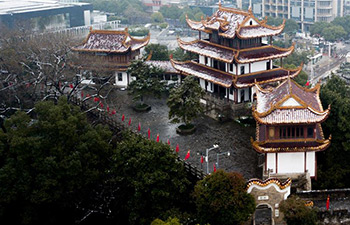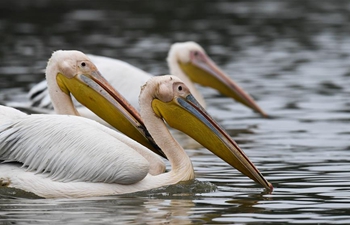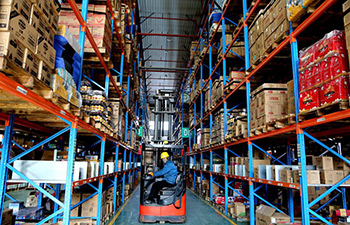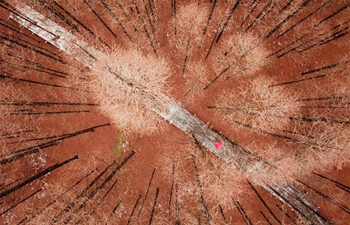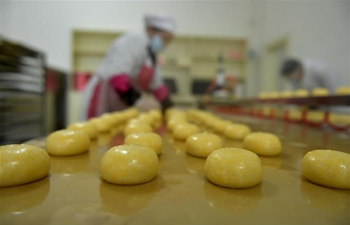by Zhang Qi and Chen Jing
DUBLIN, Jan. 17 (Xinhua) -- There are about 5,000 people living here on either side of the Ireland-Northern Ireland border, and "one of the big concerns now is that their daily lives would be interrupted if there is a hard border after Brexit," said Pat Treanor, a local councilor.
Politically, Ireland is divided into the Republic of Ireland (officially named Ireland), which covers five-sixths of the island, and Northern Ireland, which is part of Britain.
Treanor represents the people of the Sinn Fein, a left-wing Irish republican political party active in both the Republic of Ireland and Northern Ireland.
People here are mostly involved in agriculture business. There are a number of small factories both in Clones and Fermanagh. Most of the workers go wherever jobs are. So, a lot of people work on both sides of the border, Treanor said.
Standing on the short Lacky Bridge that separates Ireland's northern town of Clones from Fermanagh in Northern Ireland, Treanor said that during the conflict years, this area was blocked off. People worry that this road might be closed again after Brexit.
The conflict years refer to the years prior to the signing of the peace agreement between Britain and Ireland in 1998, during which violence was rampant on the island of Ireland. Many people lost their lives.
As a man who had gone through those violent times, Treanor said there were a number of bombs in the town of Clones. A number of shops and pubs were destroyed, and some of the bomb attack sites are still kept just to remind people of the past.
"The fear of the local people is that we could return to that period. They are concerned and fearful that if Brexit brings a hard border, there is a danger of going back to that period, and we don't want to see it again," Treanor said.
He added that there are about 200 roads between Ireland and Northern Ireland. If there is a hard border after Brexit, customs houses and checkpoints will be put up along the border.
It is not possible to put checkpoints on all the roads and some of them will have to be closed, creating huge disruptions to the daily lives of the local people living along the border area.
"We don't want to return to the past where fortified posts were set up along the border. If there is a hard border after Brexit, I am confident that the local community in this border region will campaign against that. We won't accept it," Treanor said with firm determination in his eyes.
Like Treanor, most people living in the area feel strongly against a hard border after Brexit. Anti-Brexit and anti-hard border posters can be seen on the roads in the border village.
Treanor and his townsfolk closely followed a vote by the British House of Commons on Theresa May's Brexit deal on Tuesday. May's deal includes a "backstop" insisted on by the Irish government and the 27 other EU members.
The "backstop" is a temporary arrangement to avoid a hard border after Britain's divorce with the EU until and unless a better solution is found.
The British Parliament rejected the Brexit deal in a 432-202 vote on Tuesday. Prime Minister Theresa May is required to return to parliament with a "Plan B" by Monday.
The Irish government expressed concern for the vote result and possibility of a no-deal Brexit which would be a "bad outcome for everyone, not least in Northern Ireland."
"Regrettably, the outcome of the vote increases the risk of a disorderly Brexit. Consequently the government will continue to intensify preparations for such an outcome," the Irish government said in a statement.






